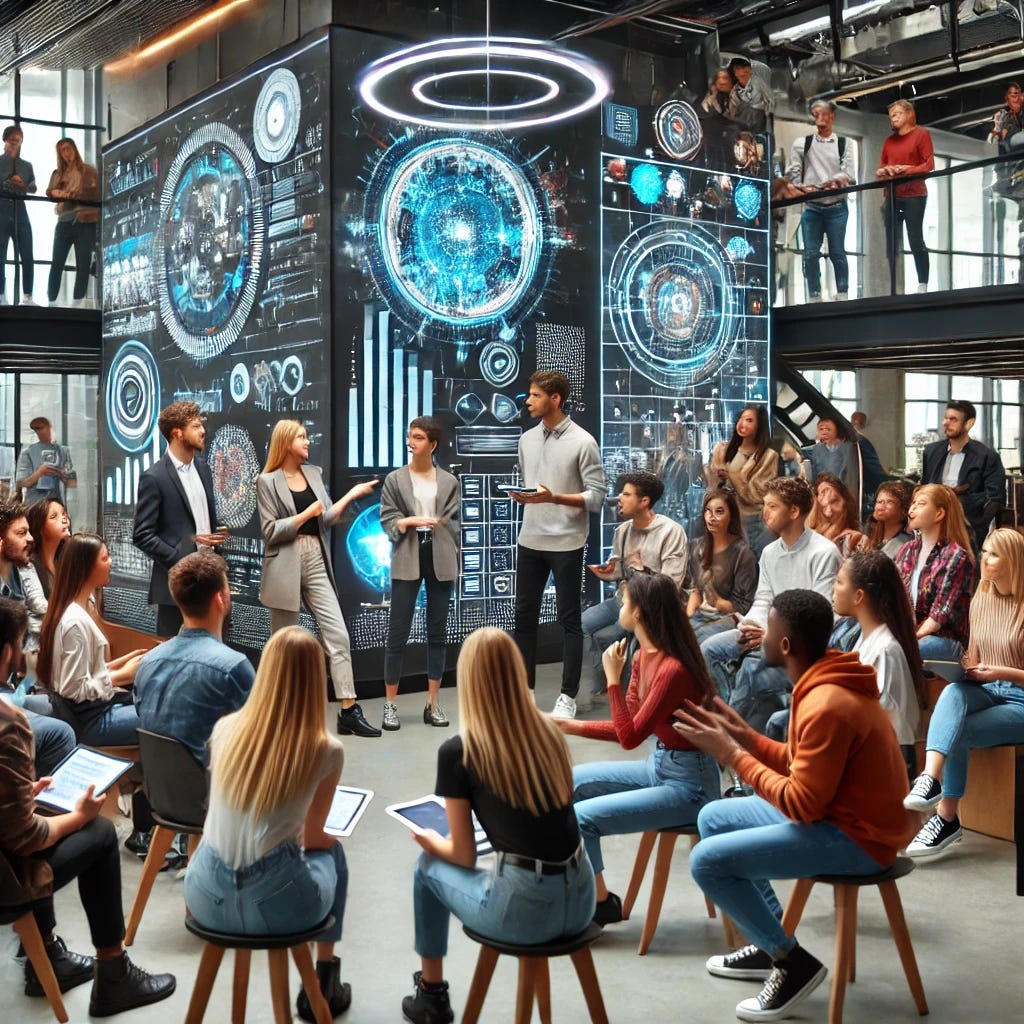Next Gen Experiences
How Gen Z Expectations Will Impact the Future of Events
While I'm generally wary of generic labels and blanket assumptions about people, a recent Gen Z survey offers valuable insights into the future of events. Despite widespread assumptions that Gen Z is content living their lives online, new research highlights their strong desire for in-person experiences—a finding representing good news for the events industry.
Even though some of the findings reflect broader event trends that transcend age, the findings provide a good lens through which to view developments.
Gen Z, now broadly aged 13 to 28, is already entering the workforce in significant numbers. Soon, they'll become a core target segment for conferences, trade shows, and professional networking events. Event operators must understand how to engage this generation that paradoxically combines digital nativeness with a craving for social connection.
Gen Z’s Contradictory Nature: Digital Yet Craving Real Connections
Gen Z, having grown up in an era dominated by technology, is often assumed to prefer virtual interactions. However, according to Freeman’s 2025 Gen Z report, this generation craves in-person experiences to build genuine relationships and enhance their careers.
A staggering 91% of Gen Z feel that technology has made them feel more disconnected and isolated at work despite their constant screen engagement. Paradoxically, considering their comfort with digital tools, they desire a balanced mix of digital and in-person events to forge deeper connections, especially in their professional lives.
This craving for authentic, face-to-face interaction is not merely about socialising. It also highlights the opportunity for business events. They understand that strong business connections are crucial for career growth. As they enter the workforce, they lag Millennials and Gen X in the strength of their professional networks. They crave platforms to foster meaningful professional relationships.
From Generic to More Personalised Events
Another Freeman report, published in late 2024, reveals that many event organisers still operate on outdated assumptions about value and fail to adapt their event programmes year-on-year.
This stagnation is apparent when considering Gen Z’s heightened need for personalisation. Gen Zers do not just want to attend an event. They want events that cater to their specific interests, particularly those that will directly contribute to their professional development.
Event organisers must adapt to these evolving demands by offering events that are not just large-scale, generic gatherings but personalised experiences that can enhance Gen Z’s skills.
This means incorporating networking opportunities tailored to their career goals, mentorship sessions, and even skills-building workshops focused on areas of interest (e.g. career progression). Speed networking sessions and interactive panel discussions designed to introduce Gen Z attendees to seasoned professionals can create an invaluable platform for development.
This caters directly to the needs of Gen Z, who are eager to grow their networks and feel more confident in navigating the professional world.
The Importance of Niche, Specialist Events
As Gen Z continues to enter the workforce, it’s clear that niche events—those that cater to specific professional sectors or interests—are set to play a central role in the future of live gatherings.
This aligns with broader trends in media and publishing, where niche brands have proven far more robust than their generalist counterparts by providing targeted, community-driven content. The explosion of subject matter-focused creator media, such as here on Substack, is one such example.
Events, too, can take a cue from this trend by focusing on specialised topics that matter most to their audiences.
Backing the trend
We observed a clear trend towards smaller events in our own survey results in late 2023 and 2024, with this shift evident across various industry sectors (more here and here). Perhaps even more compelling, however, is the enhanced quality of networking we experienced firsthand at events ranging from 75 to 200 attendees. This was further confirmed through post-event feedback from attendees..
Colin Morrison CBE also alludes to the trend in his Flashes & Flames newsletter (7 February 2025 edition). “The growth of competition from deep-dive industry specialists (especially high-value niche events from new-wave information verticals and high-profile festivals by entrepreneurs like Jonathan Weiner) suggests that trade show companies may need to become increasingly versatile. Once again, digital change is predicted (gradually) to break down the demarcation between ‘channels’–and reward specialists who know their markets best,” he wrote.
According to Freeman’s report for organisers, participants, including exhibitors and other sponsors alike are also increasingly looking for events that provide them with access to highly targeted audiences rather than broad, untapped pools of attendees. So, too, Gen Z (if not everyone!). They value relevance and impact over general content, attending events that speak directly to their industry or specific career aspirations.
Additionally, niche events offer the advantage of fostering stronger community engagement. This, in turn, creates a deeper, more personal connection between different groups of attendees. It is an opportunity for organisers to develop smaller, more intimate events for well-defined segments. It is a template that can be applied across geographies and markets.
The Value of Immersive and Interactive Experiences
While Gen Z appreciates technology, they are keenly aware of its limitations. Freeman’s report highlights that despite technology’s growing presence at events, attendees, especially Gen Z, increasingly seek immersive and interactive experiences that cannot be replicated on a screen.
Virtual keynotes or Zoom meetings don’t hold the same appeal for this generation as hands-on workshops, live demos, and opportunities for real-time feedback from industry experts.
One clear development area for events is the push towards creating immersive environments—whether through creative venue designs, live product demos, or interactive learning zones.
The Gen Z report further notes that this generation values experiences where they can engage physically and emotionally with the content. This could mean designing areas where attendees can practice new skills, explore new products, or participate in collaborative problem-solving activities.
To appeal to this generation, events should go beyond passive experiences like traditional seminars and move towards more active participation, where learning and networking happen through direct engagement. For example, instead of a standard breakout session, event organisers could facilitate a roundtable discussion where participants can contribute their ideas and challenge each other’s thinking on a particular industry issue.
Balancing the Digital and the Physical
To be clear, while Gen Z craves in-person experiences, they still expect digital elements to enhance their event experience. The key is finding the right balance.
Events that seamlessly integrate digital tools—like apps that allow attendees to match-make, schedule meetings, access content, allow real-time questions or provide real-time feedback—are more likely to appeal to this generation.
The trick is not to let technology overshadow the real-world experiences that Gen Z craves. Event organisers should leverage tech to enhance face-to-face interactions rather than replace them.
The Role of Gen Z in Shaping Future Events
Gen Z’s desire for personalised, immersive, and career-focused experiences means that event organisers must be agile, willing to pivot from traditional formats and embrace new ways to engage audiences. This shift is expected to accelerate the push towards more niche-focused events that cater to specific industries or interests, driving deeper engagement for attendees and sponsors alike.
Gen Z's focus on authenticity, networking, and professional growth means that events must move beyond mere gathering spots for information and networking breaks as add-ons. Instead, they should be designed more scientifically to be dynamic environments where attendees can grow professionally, build genuine relationships, and leave with tangible takeaways that propel them forward.
Creating personalised, immersive experiences comes with challenges, including overcoming internal resistance to change and balancing resources and new technologies.
While the concepts discussed here are particularly relevant for Gen Z, many can be applied across generations. The opportunity to move beyond generic formats and deliver tailored, impactful events that foster genuine connections and long-term success is too good to ignore.



